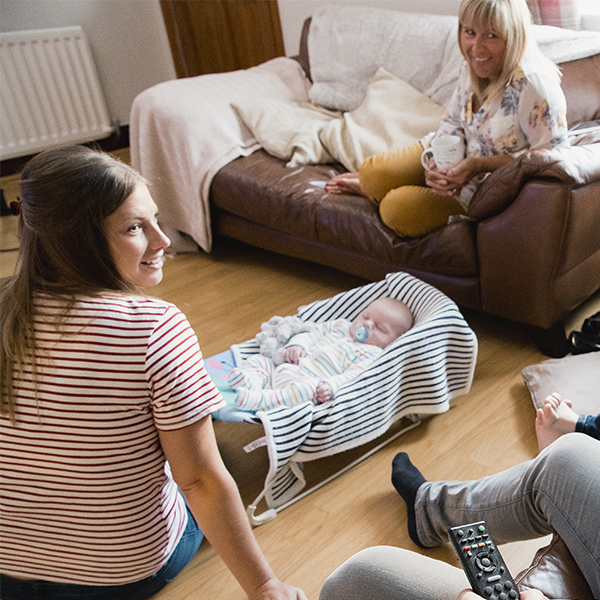Meet Hailey Steele
Hailey is a Birth Equity Manager for EverThrive Illinois
"Seeing first-hand the struggles of parents I worked with navigating complex systems just to receive support for their children, not dissimilar to the struggles I witnessed in my own family experience, really was a catalyst for me getting more involved in this work."
-Hailey Steele
Where do you live and work?
I live in the Uptown neighborhood of Chicago, and I’m a Birth Equity Manager for EverThrive Illinois.
How did you first become involved in the early childhood space?
I’ve always had a passion for maternal and child health, having grown up in a multi-generational household comprised of my grandmother, mother and sister. During and after undergrad, I worked as an in-home caregiver and a behavioral therapist for children with autism spectrum disorders and other developmental disabilities. Seeing first-hand the struggles of parents I worked with navigating complex systems just to receive support for their children, not dissimilar to the struggles I witnessed in my own family experience, really was a catalyst for me getting more involved in this work. My current role is focused more on maternal and infant health, but access to Early Childhood services is directly connected to the health and well-being of the entire family.
What are some of the biggest challenges you see in your early childhood work?
My current role is much more involved with maternal and infant health. But I’d say, from my perspective, the biggest challenge is the inability to access early childhood education services. Eligibility criteria, processes for applying to services and financial limitations make essential Early Childhood programs inaccessible to most families, which leads to huge inequities. The ability to access early childhood education services is necessary to the entire ecosystem of the family. If children don’t get the services they need, not only does it have negative consequences for the child, but it leads to further mental, emotional and financial stress for parents, which contributes to negative health outcomes.
If you could snap your fingers and instantly change something about our early childhood systems, what would it be?
I’d make these services universal, so that parents would not need to be burdened with the limitations of eligibility criteria or navigating complex and oftentimes siloed systems.
What keeps you passionate and motivated?
Simply put, this work is just extremely important. Every child and family deserve to have equitable access to the services and support they need to be truly happy and healthy. My current work is grounded in Reproductive Justice, a core value of which outlines the right for parents to raise their children in a healthy and safe environment. I believe you cannot achieve that without equitable access to Early Childhood services, so until we get there, my motivation and passion isn’t going anywhere!
What gives you hope?
I’ve been out of grad school for about a year, and just in this past year alone, everyone I have met in this field has such a passion for this work. It is really inspiring to see, especially when sometimes the state of things can feel discouraging. Seeing the passion in those who work in this field gives me hope that we are headed in the right direction.
What's something about yourself that most people don't know?
I really love horror movies! It’s probably my favorite film genre. I love being scared and seeing the artistry it takes to do special effects. Every time a new one comes out, I’m at the theater. Which is funny because I used to be such a scaredy cat as a kid!
What advice would you give to someone interested in doing the work you do?
This work can be hard and sometimes it can feel discouraging, or angering. My best advice is to use that anger to drive the work. Anger is not a bad emotion - channel it into your passion. Then, you will really feel like you’re making the progress you want to see, instead of feeling jaded, which can happen easily in this field. In my opinion, being angry is a good sign – it means you care very deeply about your work!

Comprehensive Perinatal Supports
As currently structured and funded in Illinois, the perinatal support system does not address the full scope of supports and needs of pregnant people and families, especially families at higher risk for poor birth outcomes.



